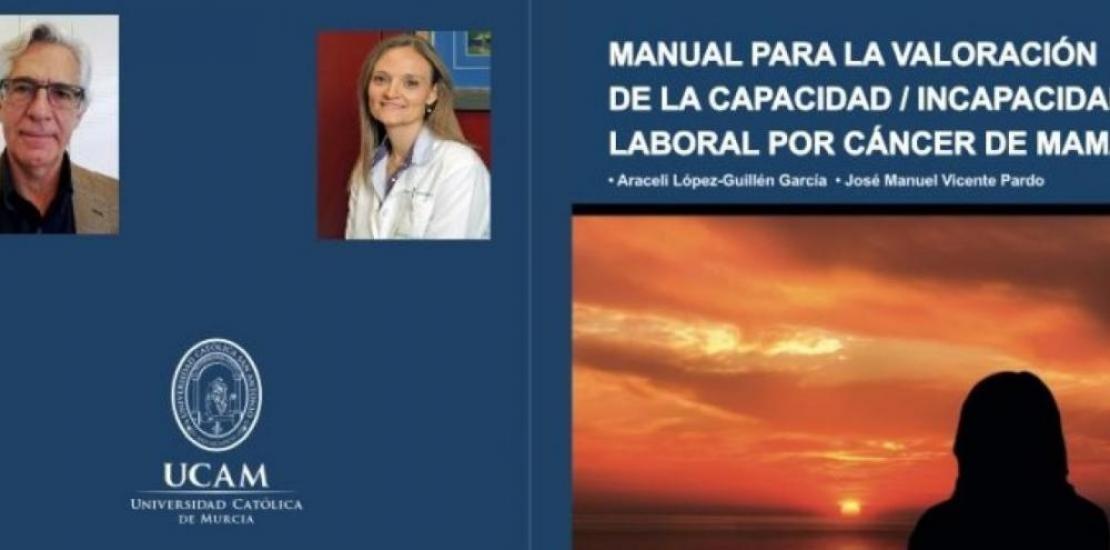UCAM publishes a 'Handbook on the assessment of occupational capacity/disability due to breast cancer'
Its International Chair in Evaluative and Expert Medicine has analysed the impact of this disease on working women, due to its high incidence and the fact that, despite the good prognosis in most cases, it causes sequelae and difficulties to return to work.
Breast cancer accounts for about 30% of all cancers, the second most frequent after colorectal
cancer. 34,750 new cases of breast cancer were diagnosed in Spain in 2021, 12,800 in the
working population. The age of peak incidence is between 45-65 years. The average age of
patients on ‘sick leave’ due to breast cancer is 49 years. 20% of new diagnoses are in women
under 45 years of age and with more aggressive cancer subtypes.
For this reason, the directors of the International Chair of Evaluative and Expert Medicine of
the Universidad Católica de Murcia considered that there was a need for a specific assessment
of the possible return to work after sick leave or permanent disability.
Their work has concluded with the elaboration of a 'Handbook on the assessment of
occupational capacity/disability due to breast cancer', which has been revised by the Sociedad
Española de Patología Mamaria (Spanish Society of Breast Pathology), and which they will
present at the 40th Congress of the Sociedad Española de Senología y Patología Mamaria
(Spanish Society of Senology and Breast Pathology) this week, at the panel discussion
'Sobrevivir al cáncer de mama... ¿y después qué?’ (‘Surviving breast cancer... and then
what?’).
The directors of the Chair are José Manuel Vicente, head of the Medical Unit of the Disability
Assessment Team of the National Institute of Social Security in Gipuzkoa, and Araceli López-
Guillén, inspector of the same service, but in Murcia, state that breast cancer causes long
periods of temporary occupational incapacity, 24% of which are permanent to some degree,
‘and the rest of the processes, which are not as serious or have a better evolution and
response to treatment, which are the majority, present some type of sequelae.’
These women may suffer from ‘functional limitations of the shoulder or arm, or lymphoedema,
as well as other limitations which are more difficult to objectively prove, although they should
not be underestimated, such as asthenia, arthralgias, pain in the breast or arm, dysaesthesia in
the hands and feet, cognitive disorders (chemo brain: lack of attention, concentration,
memory, ability to perform, etc.) and mood disorders,’ say the doctors.
In addition, they point out that breast cancer survivors especially require ‘psychological
reconstruction’, as 36% of them suffer from depression and need psychiatric support, and 55%
suffer from some kind of anxiety or adaptive emotional disorder, which requires at least
psychological support and the prescription of anxiolytics at some stage of cancer treatment.
Hence, a specific assessment of the possible return to work after sick leave or permanent
disability is necessary.
This 'Handbook on the assessment of occupational capacity/disability due to breast cancer'
demonstrates the impact of breast cancer at work with data, and deals with the multi-axial
assessment of the different symptoms and dysfunctions, their gradation, the scales to be
applied, the assessment methodology, the significance of compromised work tasks and how to
promote a healthy and lasting return or, if necessary, the correct assessment of situations of
occupational disability.




